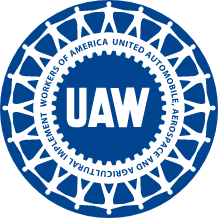FIGHTING FOR TOMORROW
PREPARING TODAY


THE ISSUES

HEALTH CARE

LABOR RIGHTS

VOTING RIGHTS

JOB SECURITY

COVID-19

RETIREMENT SECURITY

TRADE

HEALTH AND SAFETY

COURTS

ECONOMY

IMMIGRATION
THE RECORD
Where do your elected officials stand on the issues that matter? Check out the Legislative Scorecard to see how they’ve voted on the bills that impact workers.
SEE THE SCORECARD
